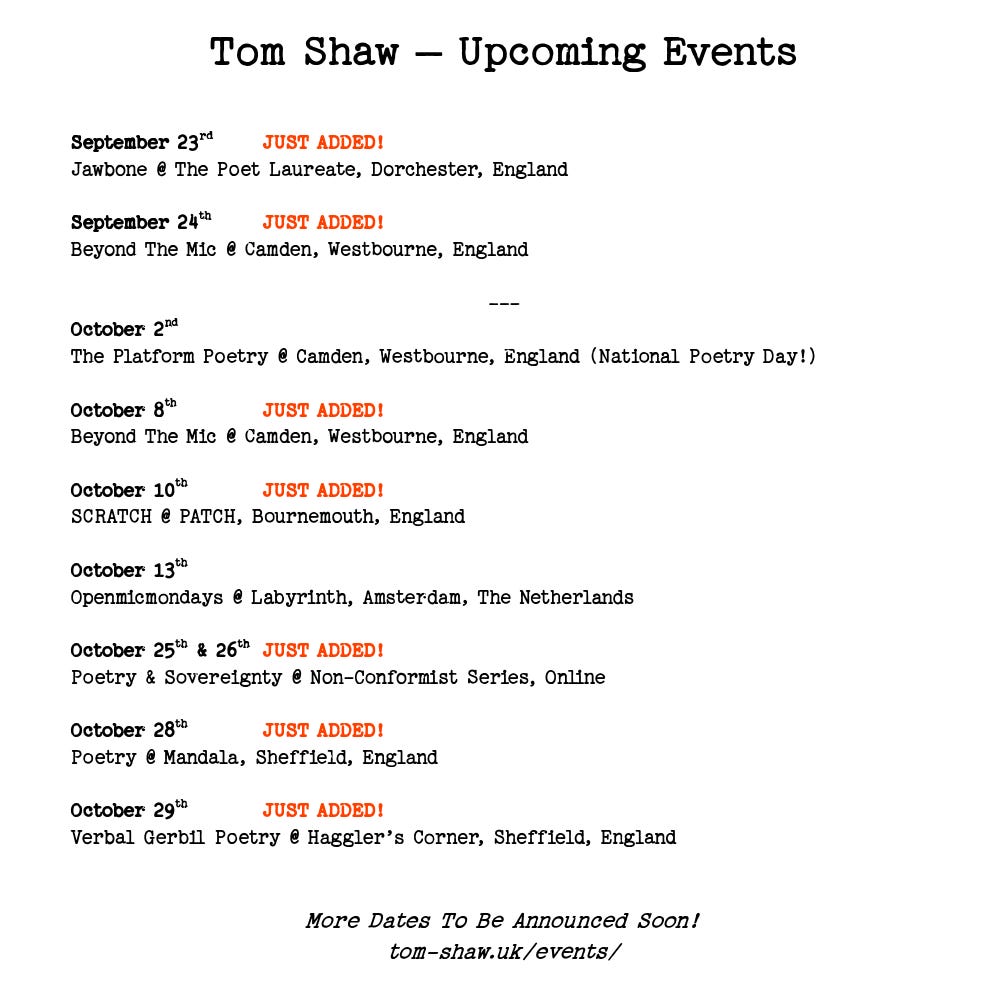A Barghest
A re-working of a previous poem.

Tell me what you have been named And what that means to you. Does it follow silently To bite onto the new? All that great expectation, Mythology and lore, Does it stalk you like a beast That prowls upon the moor? Tell me what has drawn you here; The journey that you took, The adventure you carried While earth beneath you shook. Bear your teeth through exhaustion, Each huff and puff of fear. Hear it’s echoes… Now hear me: In this place, you're safe here. Tell me what you’re running from That chases through the dark. How its eyes despise of you, The snarl with every bark. Even now, it circles round. You glimpse its spectral stance. The chain within you tightens As it waits for its chance. Tell me: now we stroke its name, And risk summoning it, As it’s closing in on you Your body starts to fit. For it shares your name, this fiend, And my eyes can't discern Its fangs clasped upon your chest That tell of its return. It’s okay to cry out at The trauma’s wrath again. A black dog only you know Is causing you this pain. But I’ve been leashed by a shuck That I then realised Was no hound, just a puppy From the past, left despised. You can hate me, if you must, For I rattled this cage. But I’ve not betrayed my word: You outlive this dog’s rage. Now that you have seen his tricks, Be sure your dog is tame. Relieve him of his duties, Now tell me: what’s your name?
This poem is a re-working of one of the oldest poems I have ever written, and one of the oldest here on Substack: Black Dog.
I’m still incredibly proud of that original piece - and, with increased practise and skill, I saw powerful opportunities to revisit the piece with a tighter grasp on meter, better pacing, and introducing ideas from British folklore (in this case, the Barghest or Black Shuck - both considered to be malicious, spectral black dogs that terrorise lone travellers) which I’ve been increasingly interested in across my poetry. Here was a great opportunity to connect the personal to the mythological to highlight that there are great reasons why these kinds of folk tales have been carried through the centuries.
Why bother focusing on folklore? Because these are some of the most pervasive, long-standing societal narratives that exist. In an era saturated by manipulative narratives from the media and politics, exercises in taking the narratives of the past and re-working our relationship with them to move beyond a state of fear, as I do here in A Barghest, we have a model for rewriting the story of our lives to become the heroes, whether it’s an ancestral or societal component, or a long-standing personal one. And I believe we’re in need of that more than ever.
Leave a comment to let me know how this piece landed with you compared to the original.
Thank you for taking the time to read this piece. I look forward to bringing you more soon.
With gratitude,
Tom
Subscribe to receive new poems and reflections from me direct to you.
Consider leaving a tip if you found value in this piece.
There’s something unique about hearing poetry in a live context, and I regularly do live readings and shows where you can hear many of the pieces shared on Substack and contained within my books. Here are some of the upcoming appearances I already have scheduled in, with more to be announced soon, including international and online appearances to cater to those in different corners of the world.
Keep an eye on my Events page for more details, which you can view by using the button below:





Tom,
What has drawn me here?
A hunger for mythology?
Mythology, I know now, is not the study of lies. Mythos, like Logos, is a doorway, threshhold, quantum wormhole that somehow connects me to the heart of mysteries.
I can explain everything. There is an infinitely dense timeless dark star, measuring a mere cubic millimeter of volume, near the center of my heart. Of course it is quantumly entangled with a similar dark star in Tom. Sometimes I hear only static, white noise.
I need practice tuning in to the right frequency. Other times, when I'm lucky, I hear a contagious giggle, clear as day, broadcasted through that grand smile. And my heart is warmed by anti-entropy and I find myself well supplied with good dreams.
Thanks.
mark spark
.
I think the poem has improved flow and rhythm and to me it has a clearer and more powerful message that will surely resonate with many who have lived through traumas. I'm not a poet but can imagine it's really challenging to work on a previous poem. x